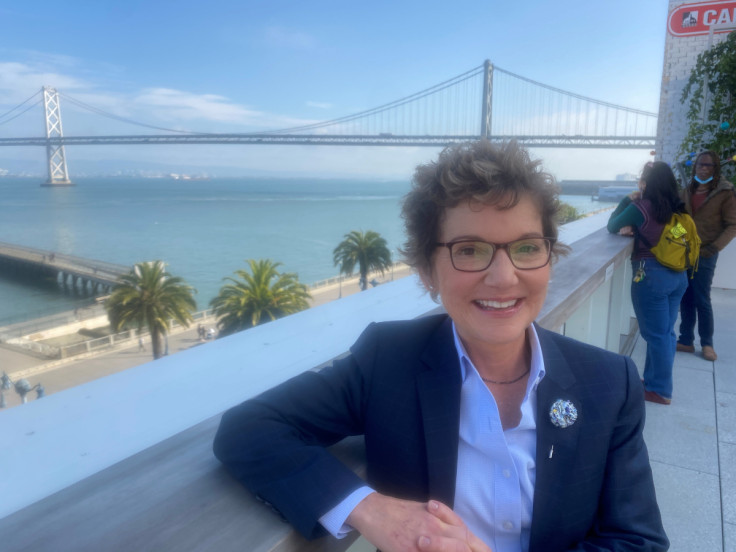Real Impact Of Fed Hikes Likely Bigger Than What Target Rate Implies, Daly Says

San Francisco Federal Reserve President Mary Daly said on Monday the real-world impact of the U.S. central bank's interest rate hikes is likely greater than what its short-term rate target implies.
Against the Fed's current short-term target rate of between 3.75% and 4.00%, Daly said some researchers have found "the level of financial tightening in the economy is much higher than what the (federal) funds rate tells us." Compared to the current target rate, she added, "financial markets are acting like it is around 6%."
Given that markets have priced in a monetary policy setting that's well beyond what the Fed has imposed on the economy so far, Daly said "it will be important to remain conscious of this gap between the federal funds rate and the tightening in financial markets. Ignoring it raises the chances of tightening too much."
That said, the Fed's policy rate is currently in "modestly restrictive" territory and "there is more work to do" to get monetary policy in the right place to cool inflation, Daly said in prepared remarks for an address to the Orange County Business Council in California.
The San Francisco Fed chief is not currently a voting member of the rate-setting Federal Open Market Committee, which will almost certainly raise its policy rate next month, the only question being by how much.
Daly weighed in as Fed officials have continued to beat the drum for further rate rises aimed at lowering the highest levels of inflation in 40 years. The central bank has lifted its short-term target from a near-zero level in March.
In economic projections released in September, Fed policymakers penciled in a mid-4% target rate for next year. Comments from a wide range of officials since then, however, have suggested that, given the performance of inflation and the ongoing strength of the job market, they may want to go higher than that. Daly has herself said could go as high as 5.25%.
But officials are also mindful that pushing the rate hikes too far and tightening policy too fast could cause too much pain for the economy, and some have debated downshifting on the size of individual rate rises as they move toward a point where the policy rate will remain unchanged for a while. Recent data showing signs that inflation may be moderating have given officials some space to hope they can moderate the rate hikes.
Daly said the next stage for the Fed will be "in many ways more difficult." She added that officials will need to be "mindful" of their choices and said "adjusting too little will leave inflation too high. Adjusting too much could lead to an unnecessarily painful downturn."
Daly said there are signs that things are moving the Fed's way, pointing to declining job openings and moderating job growth as indications of a needed economic slowdown. "Although one month of data does not a victory make, the latest inflation report had some encouraging numbers, including a long-awaited decline in goods price inflation," she added.
© Copyright Thomson Reuters 2024. All rights reserved.











